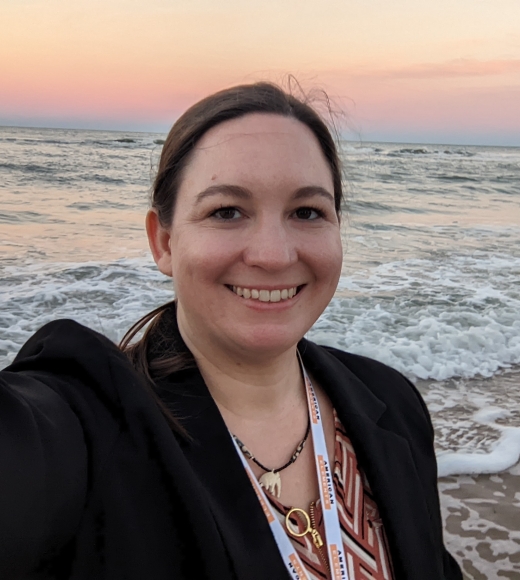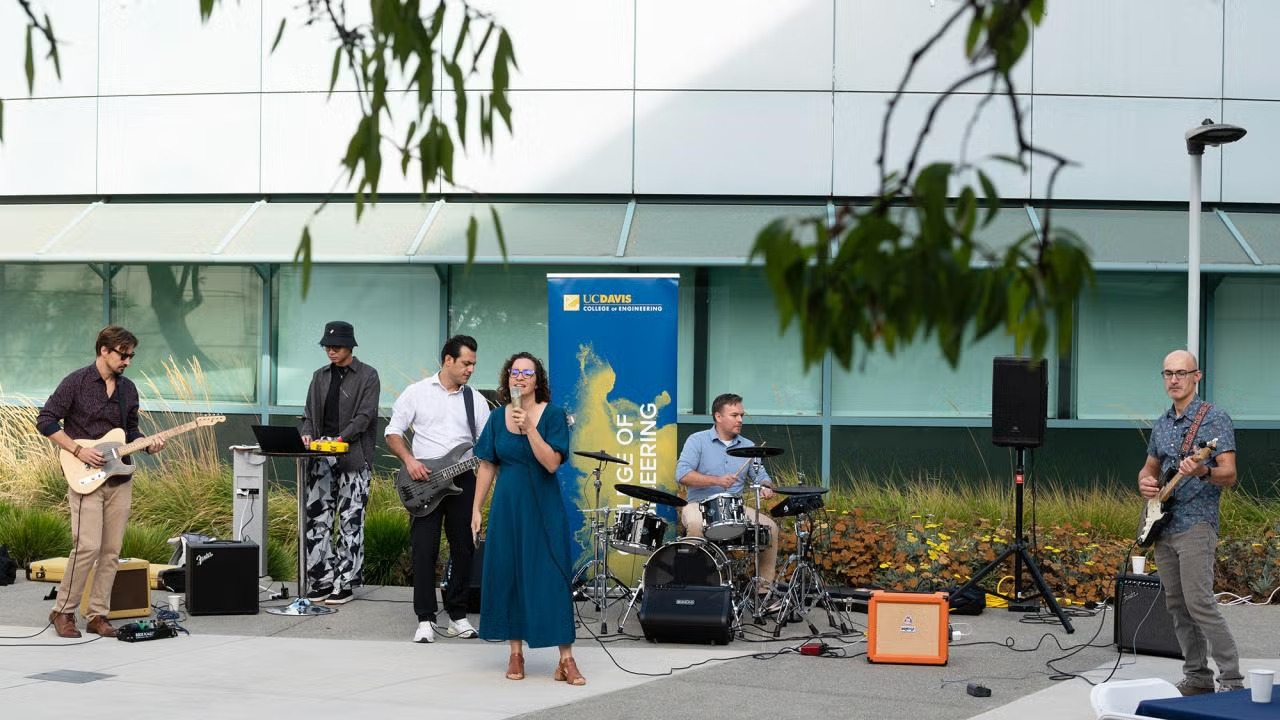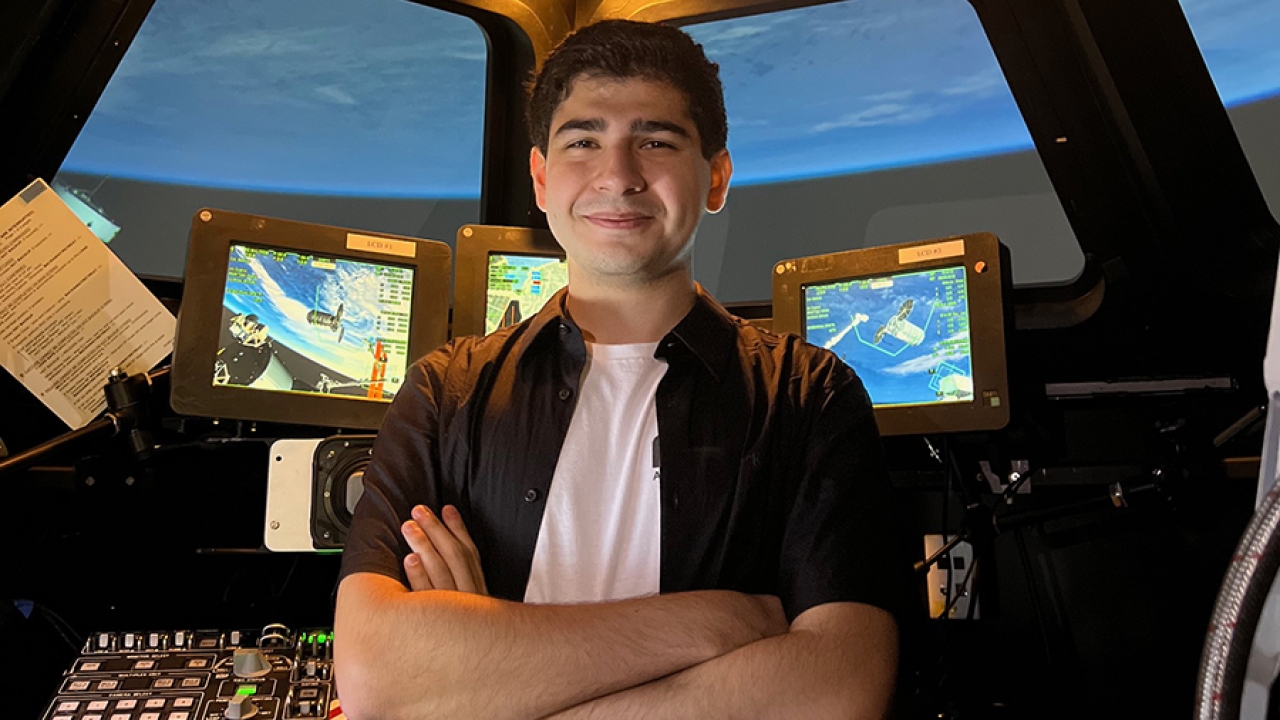Graduate Student Spotlight: Nicole O'Shea
M.S. Student, Department of Materials Science and Engineering

This spotlight is a part of our 2023 International Women's Day Feature.
What inspired you to study engineering? Describe your path to graduate studies at UC Davis.
My path to engineering graduate studies has been atypical. My bachelor's degree is in technical writing, and I worked for several years as a User Experience Researcher/User Interface Designer for a medical software company. I hadn't taken many STEM classes, so when I eventually decided to pursue a graduate degree, I filled some of my knowledge gaps by getting associate degrees in mathematics and general sciences. Despite knowing I wanted to make a major change in my career trajectory, I wasn't sure which field to enter. I was quickly enticed by materials science, which I sometimes describe as a junction of physics, chemistry, math, and art, when I took the Introduction to Material Properties course at my community college and was introduced to crystallography, phase diagrams and the materials tetrahedron.
Highlight your current research. What do you love about it, why are you excited, and how do you stay motivated?
My research is focused on understanding the thermodynamic role of grain boundaries on sintering mechanisms. To study grain boundary energy, I synthesize a nanoceramic yttria powder, sinter the powder at high temperature and pressure to form a dense pellet, and finally coarsen the grains, performing an array of preparation and characterization techniques along the way. I have really enjoyed learning so many different processes and techniques. Sintering is a fundamental and heavily utilized method of fabricating solid parts for a variety of applications, yet the process is not fully understood, in part because measuring quantities like grain boundary energy has been challenging historically. Developing materials for increasingly demanding applications like extreme conditions in nuclear reactors or space exploration requires understanding and control of processing parameters in order to tailor the material for its purpose. To facilitate my experimental research and diversify my skills I am also learning computational techniques like molecular dynamics simulations to screen dopants to streamline future studies. Knowing that my research will help elucidate such a critical material processing technique keeps me motivated, and developing my own understanding of the universe is always exciting. I am also lucky to have two research groups of skilled and motivated peers and two knowledgeable, helpful and compassionate advisors.
The 2023 International Women's Day theme is #EmbraceEquity. How do you embrace equity in the engineering field?
Representation is incredibly important in advancing equity. I try to encourage my female and other underrepresented colleagues to pursue leadership and other visible roles, I take on these roles myself in turn, I speak up when I think unnecessary and inappropriate imbalances arise, and I support efforts to end inequity among students. Equity also requires understanding, and listening to others' stories and experiences illuminates disparities which enables addressing them. I try to openly express my appreciation for my diverse colleagues and their varied backgrounds and like to engage in discussion comparing experiences with international peers here at Davis and at conferences and events.




